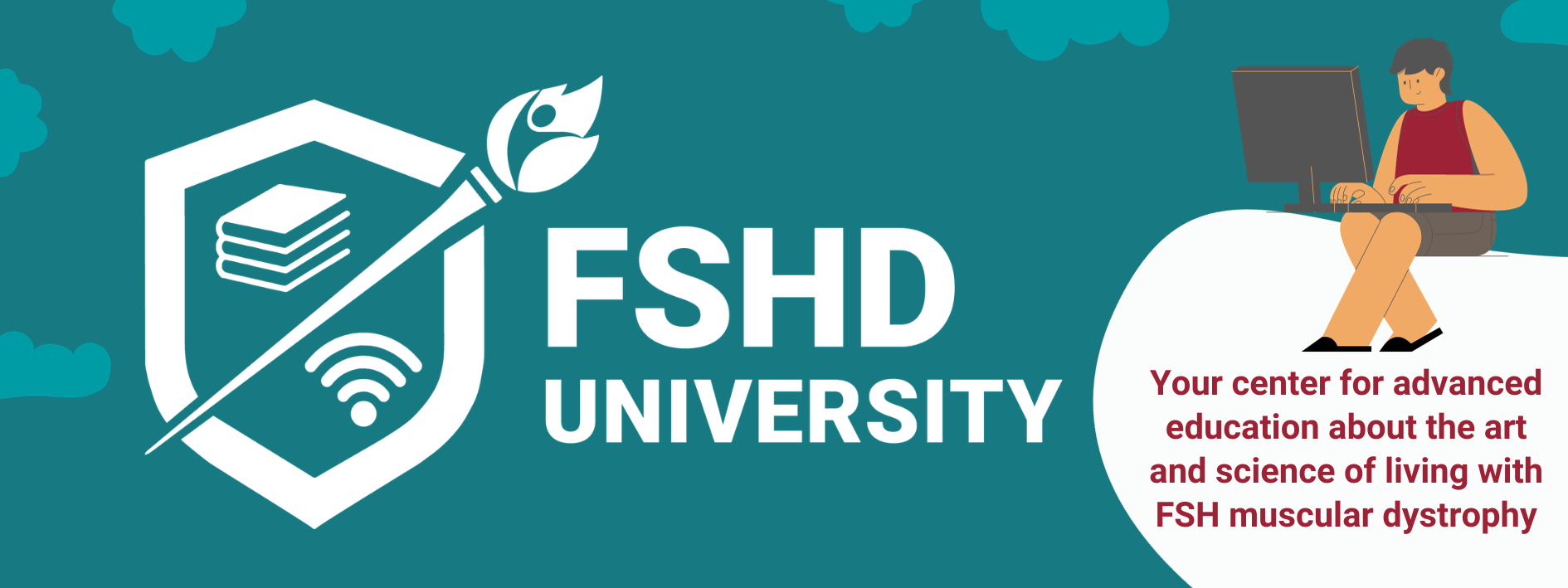
May 28 @ 1:00 pm - 2:00 pm

FSHD University – Fulcrum’s Phase 3 Clinical Trial
Wednesday, May 28
1:00 p.m. ET | noon CT | 11:00 a.m. MT | 10:00 a.m. PT | 17:00 GMT | 18:00 CET
Fulcrum’s Phase 3 Reach study was the first phase 3 study ever conducted for FSHD. The trial did not meet its primary endpoint and Fulcrum ended its FSHD program in September or 2024. While this was a huge disappointment, the trial produced invaluable data to guide future trials. Jeffrey Statland, MD, from the University of Kansas, will present the data and discuss what we have learned.
The drug losmapimod was identified based on its ability to reduce aberrant expression of DUX4 in cell culture, the cause of FSHD. Previously losmapimod was tested in phase 1-2 studies where it was well tolerated, and while not showing evidence that it corrected a series of DUX4 related biomarkers in muscle biopsies, did show some improvements in function on the reachable workspace, and muscle quality on MRI. Reach was a randomized, double-blind, placebo-controlled, 48 week study of losmapimod in FSHD. The primary outcome was the reachable workspace. Additional outcomes included muscle quality on MRI, strength testing of shoulder abductors, and patient-reported disease impact. Two hundred and sixty people with FSHD were enrolled. Losmapimod did not improve RWS, muscle quality on MRI, strength, or patient-reported FSHD disability. But losmapimod was well tolerated. This phase 3 study did not replicate the clinical benefits observed in the phase 2 study, however the study design and data are informative for future design of FSHD clinical trials.
Register here:
https://us02web.zoom.us/webinar/register/WN_qdEkXZcoS9y8MxkwDmFiGQ




